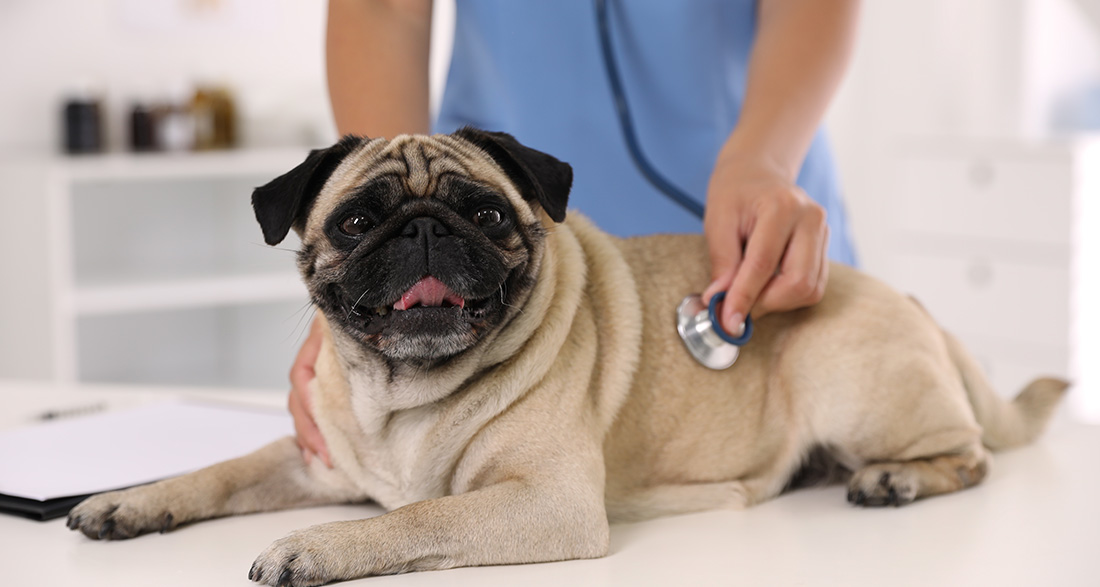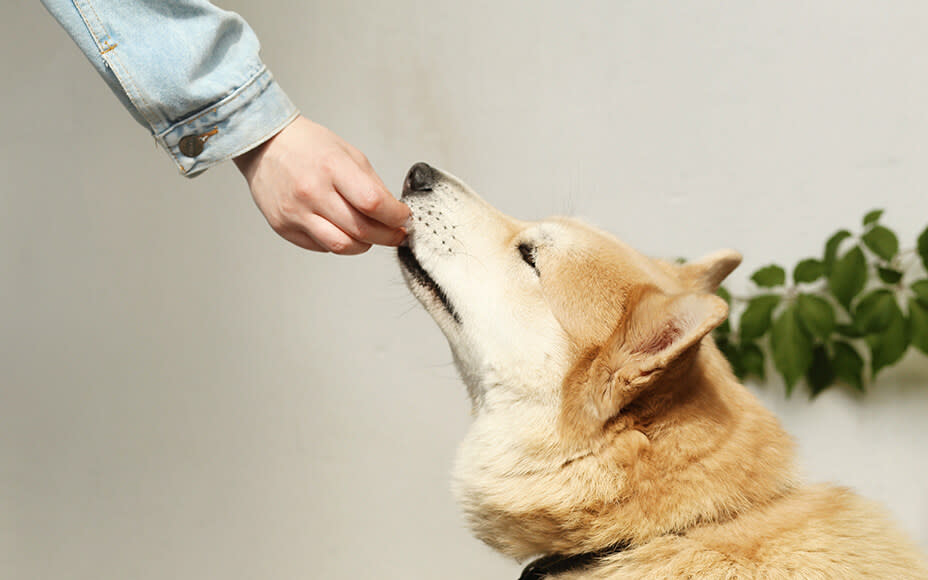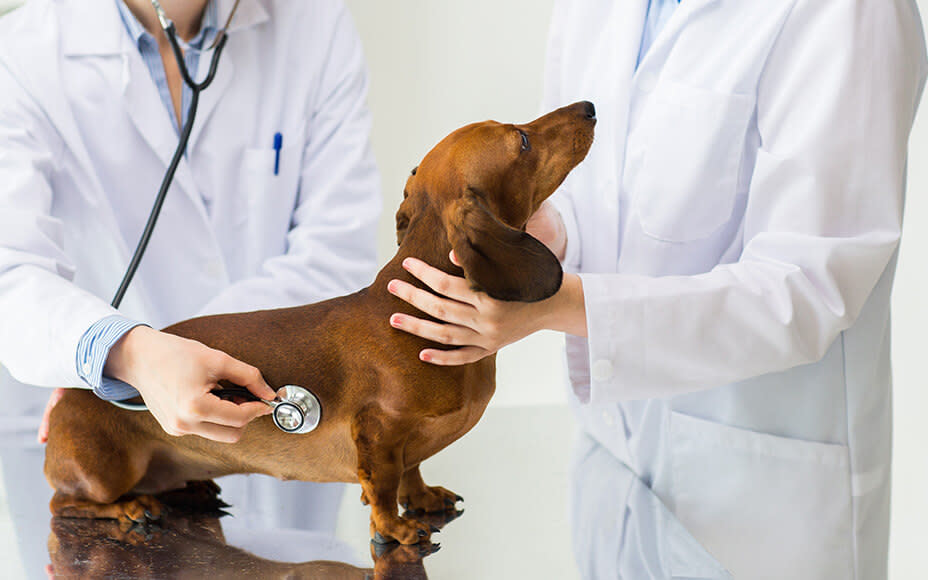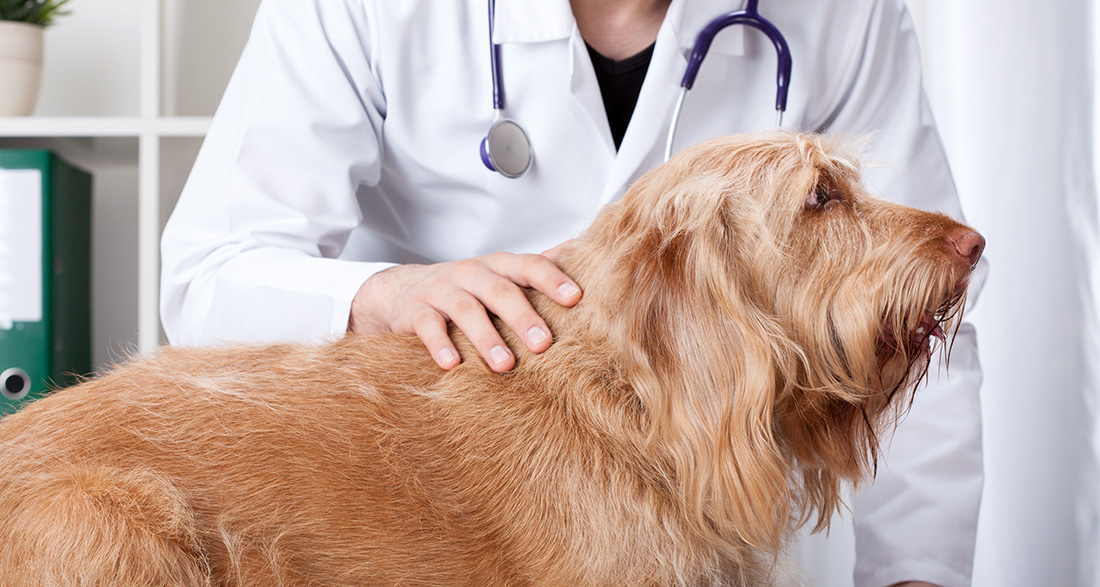Your dog is vomiting, and you wonder why? In this article, our veterinarian Sarah explains six common reasons for vomiting in dogs.
Common Causes of Vomiting in Dogs
There are many reasons why your beloved pet may suddenly need to vomit. Not every instance of vomiting is a major concern, but there are certainly dangerous causes for vomiting. In this article, our veterinarian introduces you to six common reasons for vomiting in dogs.
Symptoms: How to Recognize Vomiting?
Vomiting is one of the body’s protective mechanisms. When your furry friend’s stomach senses that something is amiss, it signals the vomiting center, and the act of vomiting begins. It is divided into three phases:
- Nausea: This phase is characterized by increased lip-licking, salivating, swallowing, and restlessness.
- Retching: In this phase, the abdominal muscles tense, the back arches, and the stomach contents move towards the mouth.
- Actual Vomiting: In this phase, the stomach contents are expelled.

Causes: Why Do Dogs Vomit?
Eating Too Quickly:
Just as you place the food bowl on the floor, your pet devours everything and licks the bowl clean in an instant? Shortly afterward, all the food comes back up just as quickly?
If this behavior occurs frequently, and you notice a clear connection between rapid eating and vomiting, it could be that your dog is simply consuming the food too quickly. This overwhelms the stomach. What can you do about it?
Divide the daily food ration into 2-3 small meals. Avoid feeding large amounts at once. There are also special slow-feeding bowls that reduce rapid eating and provide mental stimulation. Slower food intake helps prevent overwhelming your dog’s stomach.
Poisoning or Food Intoxication:
During a walk, you look away for a moment, and your pet ingests something unfamiliar? Unfortunately, some people with ill intentions leave poisoned baits in dog parks or other green areas. These baits can contain various harmful substances, and symptoms other than vomiting may also occur. If your dog tends to eat anything it finds, and sudden vomiting occurs after a walk, consider poisoning as a possible cause.
However, even at home, your pet may find some foods that are not suitable for them. Grapes, raisins, onions, garlic, alcohol, and certain spices are absolute no-gos for your four-legged friend. Store household items like cleaning agents or antifreeze out of your dog’s reach, as these substances are toxic and can cause symptoms beyond vomiting. Do you enjoy reaching for sweet fruit and want to treat your furry friend as well?

Grass Ingestion
Eating grass is a natural behavior in dogs. The scientific community has not yet fully understood the advantages of grass consumption for dogs. Not all dogs that eat grass will vomit. Some dogs may eat grass when they have stomach discomfort. The question here is sometimes which came first: do dogs vomit because they ate grass, or do they eat grass because they feel unwell?
If your dog occasionally vomits after eating grass, there’s usually no need to worry. However, if it happens frequently and regularly, have your pet thoroughly examined by your veterinarian to rule out possible medical causes.
Gastritis
Gastritis or gastroenteritis is an inflammation of the stomach or stomach and intestinal mucosa. Possible causes may include:
- Consuming spoiled food
- Medications
- Stress
- Infections with gastrointestinal parasites
- Bacteria or viruses
Other symptoms besides repeated vomiting may include loss of appetite or diarrhea. If you suspect gastritis, please consult your veterinarian!
Gastric Ulcer
A gastric ulcer, also known as a stomach ulcer, can also lead to vomiting. With a gastric ulcer, the stomach lining is damaged and susceptible to attack by stomach acid. The result is nausea, vomiting, and abdominal pain for your furry companion. In this case as well, we recommend contacting your veterinarian!
Gastrointestinal Obstruction
Gastrointestinal obstructions are often caused by the ingestion of foreign objects. Is there a missing toy (or just a part of it), or are you missing a sock? If your dog has ingested a foreign object and is vomiting, quick action and immediate contact with your veterinarian are advisable. Especially if your dog’s overall condition is poor, showing signs of lethargy, lack of energy, or other unusual symptoms, your alarm bells should ring.

Most dogs already have reduced well-being in these cases. Gastric torsion is life-threatening, and every minute counts to save your beloved pet.
What Can I Give My Dog for Vomiting?
There are, of course, many other causes of vomiting, but the ones mentioned here are among the most common.
Generally, vomiting is a common issue. If it occurs once, you usually don’t need to worry. It’s best to withhold food from your pet for 12 to 24 hours to allow the stomach and digestive tract to settle. After that, you can slowly start feeding a bland diet in small portions and divide the daily ration into several small meals. The so-called Moro soup is highly recommended, thanks to the power of the orange superfood carrot and the valuable insights of its namesake, Prof. Ernst Moro, making it a real miracle cure for acute digestive problems and vomiting.
However, as you have read, the causes can range from harmless grass consumption to life-threatening gastric torsion. You know your pet best. Especially if vomiting is accompanied by other symptoms such as diarrhea, fever, reduced well-being, or weakness, or if there is blood in the vomit, seek veterinary advice as soon as possible. Even if you are unsure, it’s better to call too much than too little. Often, vomiting is symptomatically treatable, and after some medical support, your dear pet will feel better. Remember that medications intended for humans can be toxic to our dogs, and prescriptions should be in professional hands!


